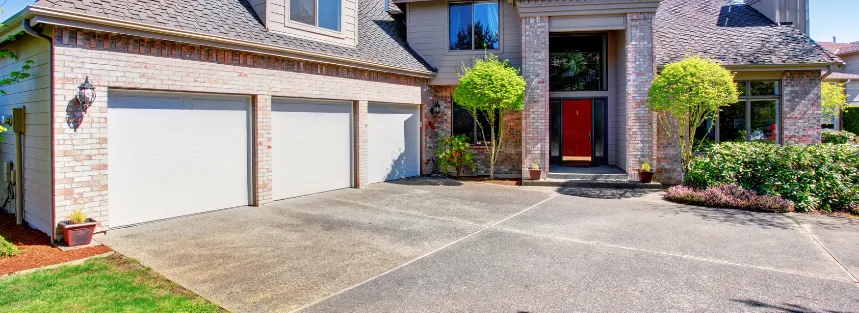Blog Detail
Why Does My Asphalt Driveway Crack?
Table of Contents
ToggleAn asphalt driveway is a strong and cost-effective surface choice for homes and businesses alike. However, over time, even the most well-installed asphalt can develop cracks. While some cracking is inevitable with age and usage, understanding the causes can help you prevent or address the problem early—and potentially avoid costly repairs or replacements.
In this blog, we’ll explore the most common reasons why asphalt driveways crack, how to identify different types of cracks, and what you can do to maintain a long-lasting surface.
1. Weather Extremes and Temperature Fluctuations
Asphalt is flexible by design, but it expands and contracts with temperature changes. In extreme cold, the material contracts and becomes brittle, making it more prone to cracking. In extreme heat, asphalt can soften, leading to warping and pressure-induced surface breaks.
Freeze-thaw cycles are especially damaging. Water seeps into small surface openings, freezes, expands, and widens the cracks. This repeated cycle weakens the pavement over time, resulting in larger and more visible cracks.
Prevention Tip:
Apply a high-quality sealcoat every 2–3 years to create a protective layer that resists moisture and UV damage.
2. Poor Installation or Subbase Issues
A driveway is only as strong as the base it’s built on. If your asphalt driveway was laid over a poorly compacted or unstable subbase, it can settle unevenly and develop cracks as the foundation shifts or erodes.
Common signs of base issues include alligator cracking, where the surface looks like a reptile’s skin—indicating deep structural failure.
Prevention Tip:
Hire an experienced contractor to install your driveway and ensure proper subbase preparation. If you’re noticing early signs of base issues, call in a professional for evaluation before resurfacing.
3. Water Penetration and Drainage Problems
Water is the #1 enemy of asphalt. If water seeps beneath the surface—especially without proper drainage—it weakens the foundation and leads to cracking. Puddles, poor runoff design, or nearby downspouts can accelerate this damage.
Standing water also promotes vegetation growth, which pushes through the asphalt and worsens existing cracks.
Prevention Tip:
Keep your driveway clean, sealed, and free of pooling water. Consider installing drainage solutions like side channels or French drains if necessary.
4. Tree Roots and Vegetation Growth
If your driveway is close to trees or large shrubs, root systems may be creeping underneath. As roots grow, they push upward, lifting and cracking the asphalt above. Unlike surface wear, root-related damage can be uneven and jagged.
Prevention Tip:
Avoid planting large trees too close to your driveway. For existing ones, install root barriers or consult a landscaping professional for long-term control options.
5. Heavy Vehicles or Overloading
Residential asphalt driveways are generally designed to handle the weight of cars, SUVs, and light trucks. Repeated parking of heavy vehicles, trailers, or construction equipment can put excessive pressure on the surface—especially near the edges where support is weaker.
This weight leads to fatigue cracks, depressions, and edge cracking, especially if the driveway wasn’t built for heavy loads.
Prevention Tip:
Limit the use of heavy vehicles on your asphalt or park them in reinforced areas. Ask your contractor if your driveway can be strengthened with additional layers or thicker base preparation.
6. Lack of Regular Maintenance
Like any part of your home, driveways require upkeep. Without routine maintenance, small cracks can grow larger and allow more water, dirt, and plant material to worsen the condition of your asphalt.
Neglected driveways often show signs of discoloration, crumbling edges, and spiderweb cracks—clear signs it’s time for a deep cleaning, sealcoating, or repairs.
Prevention Tip:
Clean your driveway at least twice a year. Fill minor cracks immediately using crack filler, and reseal the surface every few years.
7. Aging Asphalt
No driveway lasts forever. Asphalt naturally degrades over time due to exposure to sunlight (oxidation), chemicals, moisture, and constant use. As it ages, the binders that hold the asphalt together break down, making the surface more brittle and susceptible to cracking.
Prevention Tip:
While aging can’t be stopped, it can be slowed. Sealcoating and proactive maintenance can add 5–10 years to your driveway’s lifespan. If your driveway is over 15–20 years old and heavily cracked, consider resurfacing or replacing it.
Different Types of Cracks and What They Mean
Understanding crack types can help you determine whether it’s a cosmetic issue or a deeper structural problem.
- Hairline Cracks: Small surface cracks caused by shrinkage or minor wear. Easily fixable with crack filler.
- Alligator Cracks: A series of interconnected cracks that indicate base failure—requires professional repair or replacement.
- Linear Cracks: Often caused by temperature changes or subbase shifts. Usually found down the middle or at the edges.
- Edge Cracks: Found along the sides, typically caused by poor support or heavy vehicle traffic.
- Potholes: Craters formed by prolonged cracking and water damage. Require patching or replacement.
Final Thoughts
Cracks in your asphalt driveway may seem like a minor issue at first, but they can quickly lead to larger problems if left untreated. From harsh weather and water intrusion to poor installation and natural aging, there are many reasons why your driveway may crack.
The good news is that most cracking can be prevented or managed with routine care and quick repairs. Whether it’s applying crack filler, sealcoating, or consulting with a driveway professional, staying on top of maintenance helps preserve your driveway’s strength, appearance, and value.
Need professional help with asphalt maintenance or repair?
Contact Legacy Builders today for expert advice, sealing, or resurfacing services—your driveway deserves the best care.

Written By
John Doe
Lorem ipsum dolor sit amet, consectetur adipiscing elit. Ut elit tellus, luctus nec ullamcorper mattis, pulvinar dapibus leo.
Office
Contact
info@interlocking.ca
(123) 456-789
Opening Hours:
Mon – Sun: 8:00-20:00



